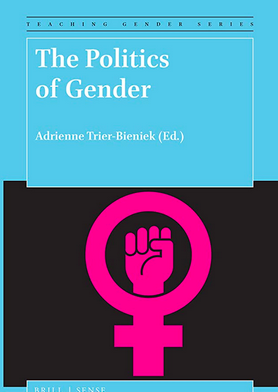To consider gender and politics is to ask “Who has the power?” The Politics of Gender attempts to answer this question through chapters deticated to topics like the history of gender equity, an analysis of the 2017 Women’s March on Washington, the nomination (and subsequent reactions) of Hillary Clinton, the impact Michelle Obama had for women of color as the first African-American First Lady, as well as the ways lesbian women’s bodies are scrutinized. In addition, this volume addresses the ways gender is litigated by examining the rights of lesbian women in Nigeria, the treatment of transgender people while in prison, and the connection between gun laws and intimate partner violence. Additionally, this text provides the reader with suggestions for community involvement, resources for voting, reading, film and Podcast recommendations, all combined with the stories of two women who discuss the change they created in their communities.
